A person convicted of a crime and placed on parole, probation, or supervised release has certain duties and obligations that must be followed as part of their sentence. Many judges will require periodic reporting, confinement to a specific geographic area, payment of fines or costs, and other conditions. Violations of parole or probation can result in severe consequences.
The consequences associated with these violations usually depend on a variety of factors, such as the nature and seriousness of the violation, whether one has any prior violations, and whether there are other circumstances that may lessen (or worsen) the severity of the situation. A probation violation may result in heavy fines, extended probation, jail time, or more.
How Probation/Parole Is Violated
Probation/Parole may be violated in many different ways. Circumstances that may lead to a probation violation include:
- Not appearing during a scheduled court appearance on a set date and time;
- Not reporting to your probation officer at the scheduled time or place;
- Not paying any required fines or restitution (to victims) as ordered by a court;
- Visiting certain people or places, or traveling out of state without the permission of your probation officer;
- Possessing, using, or selling illegal drugs;
- Committing other crimes or offenses; and
- Getting arrested for another offense.
When Probation/Parole Is Violated — What Happens Next?
Warning or Request to Appear in Court
There is no set rule as to what happens immediately after a probation violation is reported. Probation officers have broad discretion to issue a warning, or require you to appear in court for a probation violation hearing. In deciding, a probation officer may consider the severity and type of condition violated, past probation violations or warnings, and other considerations. If you are requested to appear in court, the probation officer may request some form of penalty, which may potentially include jail time.
Determination of Probation Violation
During a probation hearing, a judge will hear your case to consider whether you violated any terms or conditions of your probation. The prosecuting attorney will need to prove a violation occurred by a “preponderance of the evidence” standard. Factors a judge might consider include the nature, type, and seriousness of the violation claimed, as well as a history of prior probation violations and other aggravating or mitigating circumstances.
Sentencing
If you are found guilty of probation violation, sentencing will occur shortly after the probation hearing, at which time the court may extend your probation, impose additional probation terms, order you serve time in jail, or revoke your probation altogether and require you to serve out any remaining time of your original sentence in prison. Factors a judge may consider in determining your sentence may include the nature and manner of the offense and whether the offender was a “first-time” or “repeat” offender, among others considerations.
Confidential Consultation
If you believe that you are under investigation, have been subpoenaed before a grand jury or arrested and charged with a crime, contact Neff & Sedacca, PC for a confidential consultation by phone at (215) 563-9800 or email at info@NeffSedacca.com.

